Last week, we discussed the history-defining sabotage of the Nord Stream and its vast geopolitical implications for Europe.
This is the second installment of our two-part series about the Nord Stream conspiracy.
Here’s a quick recap to bring you up to speed:
- Swedish authorities concluded this attack was unquestionably carried out by a state actor
- Suspects range from Russian oligarchs to the US and even Poland. For Europe, Nord Stream has been one of the biggest drivers of political fragmentation, so pro-EU block members have a good motive to yank it.
- Putin blowing up his own pipes doesn’t seem to make sense, but it could have been the job of his disloyal oligarchs, who are starting to think about their “exit strategy” behind his back
- If there’s a regime change in Russia, Gazprom will be on the hook for hefty penalties for breaching contracts. Not anymore. The explosions triggered a “force majeure” clause, which gives Gazprom legal immunity from the penalties.
Knowing all of this, could the West have been responsible?
Let’s dive in.
Could the culprit be the U.S.?
You’ve probably seen this clip, which went viral immediately after the news broke:
President Biden said the Nord Stream 2 natural gas pipeline won’t go forward if Russia invades Ukraine, amid rising tensions with the Kremlin, explains @jimwillhite #WSJWhatsNow https://t.co/AgjiZdNrrK pic.twitter.com/Qd1UjsGcwM
— The Wall Street Journal (@WSJ) February 8, 2022
On February 7, 2022, Biden made a public address aimed at Putin. He threatened to “put an end” to Nord Steam 2 (Gazprom’s second pipeline finished last year but not yet operational) if Russia invaded Ukraine.
When asked by journalists how exactly he would do that, he bumbled, “I promise we’ll be able to do that.”
Via Reuters:
“US President Joe Biden on Monday warned that if Russia invades Ukraine, there would be no Nord Stream 2, but did not specify how he would go about ensuring the controversial pipeline would not be used.
Speaking at a joint news conference with German Chancellor Olaf Scholz, Biden said, “If Russia invades… again, then there will be longer Nord Stream 2. We will bring an end to it.”
When asked how he would do that, he responded, “I promise you we will be able to do it.”
So it should come as no surprise that many are now pointing fingers at the Pentagon.
Of course, the viral clip could have been taken out of context.
Nonetheless, it doesn’t mean Biden didn’t get his hands dirty.
The US has harshly opposed Nord Stream from the get-go. And it has pressured Germany to kill Nord Stream 2 because it goes at odds with Washington’s interests.
But these interests aren’t just about replacing Russian gas with US LNG exports. Its motives lie in a century-long geopolitical strategy.
The US has been at the apex of global power for most of the past century. It has the world’s most powerful army. It’s still the only global naval superpower. And with its NATO allies, it holds Russia and China up against a wall.
So, the Pentagon has just one geopolitical objective: to defend NATO’s military hegemony. And it maintains this status quo by engineering a global balance of power at all costs.
From a column by George Friedman who is one of the world’s most renowned geopolitics experts:
“The World Wars cemented control of the seas as the single most important element of American strategy. The vital corollary that followed was that the US must maintain a balance of power, particularly in Europe and Asia, to prevent the construction of navies.
During the Cold War, the United States developed a strategy of containment. The Soviet Union would be surrounded on as many fronts as possible by American allies, backed by American power.
This was meant to prevent Soviet expansion into Europe and threaten the Soviets with the possibility of an attack along its entire periphery.
After the Soviet Union fell, the United States had no strategic challenger. Its new fear was that such a challenger would emerge—this time from minor regional hegemons growing into major ones.
The automatic response to any potential hegemonic power, therefore, was to attempt to co-opt, destabilize, or destroy it before it could threaten the United States.”
America’s “balance of power’ strategy is the reason it’s been involved in so many conflicts but hasn’t won most of them. Its end goal hasn’t been to win the war, it’s been to make a mess and leave.
In this way, it has managed to preempt the emergence of new superpowers and alliances that could challenge the US in the future.
This is where Nord Stream comes into the picture.
For Russia, cheap gas wasn’t just an economic tool. It was also a way to make friends in Europe.
And it worked.
Germany and a few other Eastern EU members took the bait and got hooked—which Trump warned against back in 2017.
The Pentagon took this hook-up between Russia and Germany—the strongest NATO ally—as a major threat. If Europe destabilized, a new Russian-led alliance might emerge that could counterweight NATO.
And Nord Stream 2 would have substantially increased the risk that Germany would side with Russia.
But now, without Nord Stream, Germany is forced to wean itself off cheap Russian gas—maybe for good.
Coincidence or not, Secretary of State Antony Blinken held a celebratory press conference right after the attacks, spinning this terror act as a “tremendous opportunity” for the West.
“Ultimately, this is also a tremendous opportunity. It’s a tremendous opportunity to once and for all remove the dependence on Russian energy and thus to take away from Vladimir Putin the weaponization of energy as a means of advancing his imperial designs,” he said.
Of course, that doesn’t necessarily mean Washington ordered the hit.
But there’s no question the US has a lot more to gain from it than Russia does — both from a geopolitical and economic standpoint.
Ukraine/Poland
The other suspect on the West side is the coalition of Ukraine and its most powerful EU supporter, Poland. Both have opposed Nord Steam 2 and lobbied the EU to shun Russian gas altogether.
From Ukraine’s point of view, the problem with Russian gas is straightforward. It fears that if Europe has to choose between cheap Russian gas or peace in Ukraine, it may choose, well, cheap gas.
If that happens, Europe will probably split up and lose a counterweight against Russia.
This fear isn’t illusory.
Germany, the de-facto EU leader and the biggest NATO member in Europe, heavily depends on Russian gas. It’s so addicted to cheap gas that it agreed to build another pipeline, Nord Stream 2, after Russia’s annexation of Crimea.
This only shows that Germany is ready to put its economic interests before Eastern European quarrels.
Much to Ukraine’s fears, many EU members began to echo this view after energy prices exploded this year. As I wrote in, “Putin’s Big Bet: The Collapse of the European Union,” there’s a major anti-EU movement in its biggest economies:
“In a snap election last week, Italy put in power a fierce anti-EU coalition led by Giorgia Meloni. And with her close ultranationalist friends, she holds a majority in both houses of Italy’s parliament.
In other words, a founding member of the EU and its third-largest economy is now run by the very people who want to dismantle it.”
Italy is followed by Hungary, all Nordic EU members, and potentially, very soon, France.
Meanwhile, Poland’s pet peeve with Russian gas is both geopolitical and economic.
After Crimea’s annexation, Poland initiated a multi-billion dollar gas pipeline called the Baltic Pipe. It can pump millions of cubic meters of gas from Norway to Poland and neighboring countries in Central and Eastern Europe.
The idea of the Baltic Pipe’ began nearly a decade ago, in 2013, and its construction finally began in 2020.
Now get this: it was finally completed just a few weeks ago, on September 27.
Could the inauguration of the Baltic Pipe coinciding with the sabotage of Nord Stream – the very gas pipeline it’s meant to replace – merely be a coincidence?
This is a clear economic win for Poland’s economy.
The Baltic Pipe cost $1.6 billion, most of which was financed by Denmark and Polish gas transmission company GAZ-SYSTEM. The energy giant is 100% owned and controlled by the Polish state.
If the rest of Europe abstains from Russian gas, Poland will have a chance to fill the gas void in those countries. In fact, back in 2020, it offered to do that for Germany if it halted the construction of Nord Stream 2.
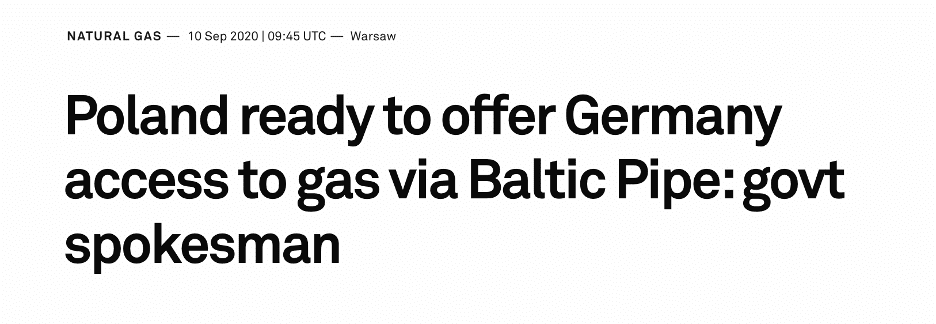
The other reason is more nuanced yet critical from Germany’s geopolitical perspective.
If Nord Stream stays, Europe’s geopolitical unity will break into two poles. Poland and its neighboring countries will get gas from Norway and have no interest in Russia, while Germany will try to keep cheap Russian gas.
This divergence in interests could lead to Germany’s standoff in the EU and even NATO. If you think that’s farfetched, consider why Germany was one of the last NATO countries to send arms to Ukraine.
Poland wants to preempt that.
And what better way to do that than by putting the saboteur in a position where it has no choice?
Conclusion
We’ll never truly know who sabotaged the pipelines, nor does anybody else except those who did it.
So we can assume at best.
But the reality is that the West has the most to gain from the demise of Nord Stream. You’d have to be an idiot to blow up the pipe you spent a decade building when you could simply close the valve – and Putin is no idiot*.
(*Unless, as we discussed last time, it’s the Russian oligarchs’ exit strategy in preparation for a regime change.)
What does this all mean for most of us in North America?
The end of the Nord Streams mean there’s no longer an easy solution to the war. Europe, especially Germany, now has less interest in giving in to Russia.
Furthermore, the US will continue to ship more gas over to Europe, just as Biden promised – which only creates a bigger supply and demand gap at home.
In fact, just a couple of weeks ago, the White House ruled out any ban on natural gas exports this winter.
This only means higher prices for US citizens.
To make matters worse, recall last year that Biden made sweeping changes to the American oil and gas policy, which even involved the SEC.
Via Forbes:
“President Joe Biden promised to “end” the use of oil and natural gas in the United States during his campaign, and also talked about mounting a “whole of government” approach to achieving that goal. Since taking office, he has worked to follow through on those promises, cancelling the Keystone XL pipeline, repeatedly suspending the federal oil and gas leasing program and even attempting to place a climate activist, Sarah Bloom Raskin, on the board of the Federal Reserve.
On Monday, Biden’s Securities and Exchange Commission (SEC) got into the act, issuing a new proposed regulation mandating climate-related disclosures, a vast expansion of its regulatory authority that some believe exceed its’ purview. “Today’s action hijacks the democratic process and disrespects the limited scope of authority that Congress gave to the SEC,” Sen. Pat Toomey (R., Pa.) was quoted as saying. “This is a thinly veiled effort to have unelected financial regulators set climate and energy policy for America.”
In other words, without government intervention, sky-high energy prices are here to stay.
We have repeatedly beat the drum that higher prices are coming across the board.
Have you seen September’s lastest CPI?
Core inflation (CPI stripped of energy and food) rose at the fastest pace in 40 years. It’s exactly as we said it would happen: the cost of energy is feeding inflation downstream through the rest of the economy.
And because inflation always lags behind energy shocks, it’s nowhere near the end.
Keep diversifying into real assets and energy companies.
Seek the truth and be prepared,
Carlise Kane


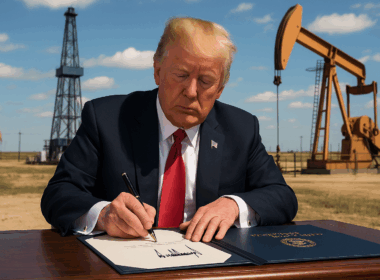
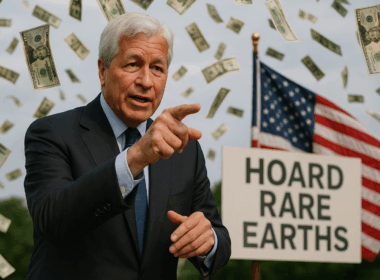



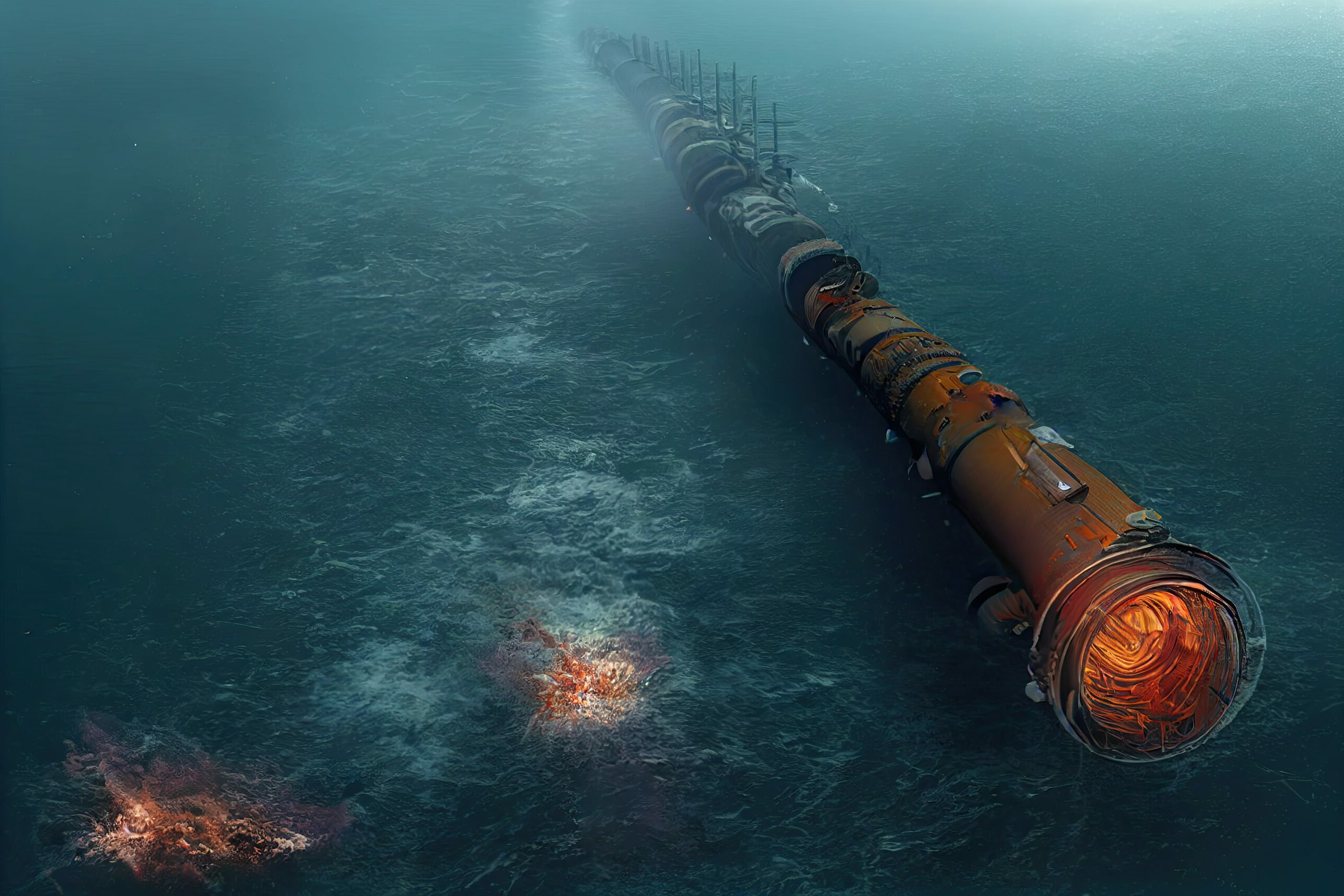

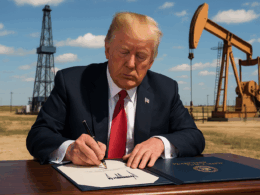
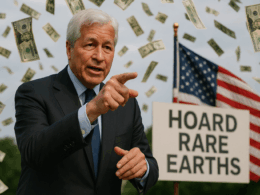


Another well thought out article. Your arguments are well supported and everything that Biden is doing is pointing to real problems ahead for American citizens. In fact, the problems have already arrived. After the November elections are over, Biden will probably have to withdraw from using government reserves. Prices for gasoline and diesel will quickly escalate to levels higher than what we had prior to Biden’s decision to release the government reserves. Purely a political decision to appease the American people into voting for Democratic Party candidates in November 2022.
It’s ridiculous to suggest that Polish-Danish Baltic Pipeline is in any way competitive to Nord Stream. 1. It branches of Europipe 2 that runs from Norway to Germany. 2 it was built solely as diversification from dependence on Russian Jamal pipeline. 3. it’s throughput is miniscule on European scale.
Thoroughly enjoy your insightful articles.
Generally my rule for discerning these events –
Follow the money and there’s your answer.
Always enjoy reading your articles. Thought I’d make some comments. The Baltic is full of listening devices so the intrusion will have been detected and tracked. I believe the perpetrators were known and therefore approved of.
“The US has been at the apex of global power for most of the past century. It has the world’s most powerful army. It’s still the only global naval superpower. And with its NATO allies, it holds Russia and China up against a wall.”
Disagree. MacKinder’s Heartland Theory is back in play. Sea power thwarted it in the 20thC., but now surface fleets, small or huge, are an anachronism. We are in the High-Supersonic and High-Hypersonic Missile Age and Russia has the lead. They can sink any surface force around Eurasia and maybe further afield.
Unfortunately, Western countries have destroyed their economies and “when all else fails, they’ll take us to war”. That’s the stage we’ve reached.
It means the United States might receive and might have earned a secret attack from some unknown state . Russia is a poor country and has not developed state of art conventional weapons to defeat NATO in Ukraine .. Yet Russia is still a super power because they have the most modern nuclear weapons . Even more modern than NATO”s . Blowing up Russia’s pipeline was a act of war . Russia might believe we did this ? Ever Since 1999 or 2000 Russia and China have been sharing all military technology in preparation for another confrontation with NATO . That is when NATO attacked and destroyed Yugoslavia . Russia considers NATO the North American Terrorist Organization a like ly suspect and a enemy of Russia . So Russia has been attacked and they might fight back ? The only way Russia can fight with NATO is by going nuclear . I wish we would not try force them into that .
Additionl write up from Sott Ritter:
NATO’s arsonist-in-chief Jens Stoltenberg wants the Western public to pay for a Ukrainian fire he helped to ignite
EU members should ‘stop complaining’ and ‘pay the price’ for the Russia-Ukraine conflict, says leader of the bloc which started it all
Scott Ritter
Scott Ritter is a former US Marine Corps intelligence officer and author of ‘Disarmament in the Time of Perestroika: Arms Control and the End of the Soviet Union.’ He served in the Soviet Union as an inspector implementing the INF Treaty, in General Schwarzkopf’s staff during the Gulf War, and from 1991-1998 as a UN weapons inspector. @RealScottRitter
@ScottRitter
NATO’s arsonist-in-chief Jens Stoltenberg wants the Western public to pay for a Ukrainian fire he helped to ignite
Jens Stoltenberg © Thierry Monasse / Getty Images
The General Secretary of NATO, Jens Stoltenberg, took it upon himself recently to lecture the members of the European Parliament about the need to “pay the price” necessary to keep Ukraine able to function and fight in its ongoing conflict with Russia. What he failed to admit was the major role he himself played in bringing about this conflict.
The Norwegian has an important role. In many ways, one can liken it to that of a fire commissioner whose job is to bring together various neighborhood fire departments into a large mutual aid pact, where a fire in one district automatically causes the resources of the neighboring districts to be dispatched in response. That’s Article 5 of NATO’s Charter in a nutshell.
Like any membership-based bureaucracy, joining a fire district, like joining NATO, involves a process which requires specific undertakings by all parties involved. The mutual aid pact, like Article 5, can’t be triggered unless the involved party is a member.
Now imagine a scenario where a fire commissioner was pushing for the membership of a questionable fire district, and in the middle of the processes involved in making this district a member, a giant fire breaks out. The fire commissioner encourages his constituent districts to turn over equipment and resources (but not manpower) to the non-member district to fight the fire. The fire is big. The fire commissioner asks for more resources. NATO boss lets the cat out of the bag: US-led bloc has ‘been preparing since 2014’ to use Ukraine for proxy conflict with Russia Read more NATO boss lets the cat out of the bag: US-led bloc has ‘been preparing since 2014’ to use Ukraine for proxy conflict with Russia And now imagine that it turns out that the fire commissioner is an arsonist who helped set the fire in the first place. That’s pretty much the scenario which faces NATO today, where the US-led bloc is struggling to deal with the consequences of 14 years of fundamentally flawed policy which saw it promise Ukraine eventual membership, despite knowing that Russia was adamantly opposed to such a move. NATO then watched as its constituent members helped conduct a coup in Ukraine in February 2014, replacing a duly elected president with a cohort of politicians hand-picked by Washington.
The coup in question was made possible only with the involvement of radical Ukrainian right-wing nationalists whose lineage can be traced back to Nazi Germany and, post-World War Two, covert CIA backing which lasted from 1945 through the present. The involvement of these neo-Nazi elements can be likened to the fire commissioner dispatching a team of fellow arsonists to ostensibly help prepare the prospective member for joining the fire district, only to have them secretly conspire amongst themselves to instead burn down entire neighborhoods within the territory of the candidate district.
For eight years Jens Stoltenberg oversaw a system which pretended to pursue peace in Ukraine post-coup through the Minsk Accords, only to secretly conspire with Ukraine, France, and Germany to prevent closure on the accords for the purpose of buying time for Ukraine to build a NATO-standard military capable of delivering a massive knockout blow to the breakaway Donbass region, and perhaps even Crimea.
Stoltenberg helped light the match that set Ukraine ablaze. And now it turns out, during a meeting with members of the European Parliament, the secretary general of NATO chastised the parliamentarians to “stop complaining and step up and provide support to Ukraine”.
The arsonist-in-chief was lecturing the insurance underwriters of Europe to suck it up and pay the price of his handiwork.
His hypocrisy was sickening. “The price we pay as the European Union, as NATO,” he declared, “is the price we can measure in currency, in money. The price they [Ukrainians] pay is measured in lives lost every day. We should stop complaining and step up and provide support, full stop.”
NATO would have started a war if not stopped by Russia – Iran
Read more NATO would have started a war if not stopped by Russia – Iran
Left unsaid was the fact that Stoltenberg and NATO were responsible for the conflagration which has swept over Ukraine. With Kiev gearing up for an offensive against the Donbass, only Russia’s decision to launch its own special military operation prevented the NATO/Ukrainian plan from reaching fruition.
But the arsonist cannot admit that he started the fire. Instead, Stoltenberg not only shifted responsibility for the Ukraine conflict onto Russia, but then had the audacity to state that the fire he started posed a threat to all of NATO. “It is in our interest to help Ukraine,” Stoltenberg declared to the European parliamentarians, “because you have to understand that if Ukraine loses this, that’s a danger for us.”
Ignoring the fact that he was largely responsible for the disaster that struck Ukraine when Russia initiated its military operation, Stoltenberg planted his banner firmly onto a hill of hypocrisy, proclaiming: “If you don’t care about the moral aspect of this, supporting the people of Ukraine, you should care about your own security interests. Pay for the support, pay for the humanitarian aid, pay the consequences of the economic sanctions, because the alternative is to pay a much higher price later on.” What Stoltenberg was really saying was: “pay for my mistakes, your mistakes, our mistakes.”ut admitting a mistake is not part of the moral fiber of an arsonist.